This article is more than 5 years old.
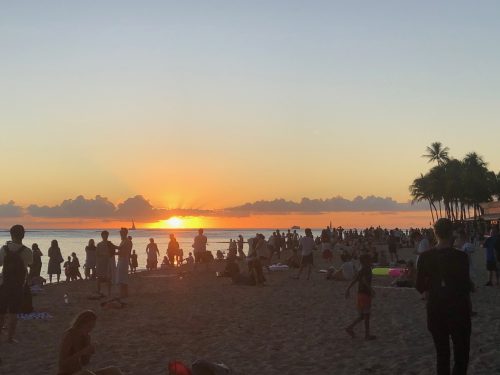
I attended the Annual Meeting of the American Studies Association, November 7-10, in Honolulu, Hawaii. This year’s conference theme, Build as We Fight, arose from “the corruption of capitalism and the limits of U.S. power,” while “acknowledging the imperative to create alternative means of survival and models of community from the group up to address social problems that those in power cannot and will not solve” (conference program). In short, it was an intense four days, filled with presentations that challenged participants to reexamine the ways we think, teach, and communicate in higher education, along with examples of innovative, social justice-oriented strategies for engagement in and beyond the academy.
In keeping with the theme of the conference and the principles of the field of American studies, holding the conference in Hawaii gave scholars from around the world a chance to converge in a place where we could “learn from and stand with the movements for Hawaiian Renaissance and Indigenous Resurgence” (conference program). The Opening Plenary did just that, starting the conference off with powerful and energizing words from scholar-activists who have been fighting the construction of the Thirty Meter Telescope on Mauna Kea, a mountain considered sacred by many Native Hawaiians, located on the Big Island of Hawaii.
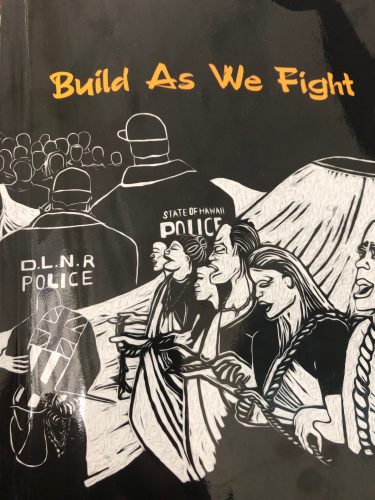
Panelists Jonathan Kay Kamakawiwo’ole Osorio, Candace L. Fujikane, Ilima Long, Noelani Goodyear-Ka’opua, Noenoe K. Silva, and Pua Case described the work of the Mauna Kea demonstrators, who gathered in July 2019 to block construction vehicles’ access to the road leading to the mountain’s summit. These activists aren’t abandoning their posts for one second, and have built a makeshift village on this road full of tents, medical stations, a school, and a daycare. One panelist even talked about her family’s plans to decorate their tent for the holidays, as they don’t plan on leaving anytime soon. You can read more about the demonstrations in this article in The Guardian.
Four of the five panelists are faculty at the University of Hawai’i at Manoa, which has officially stated and reaffirmed its support of the construction of the Thirty Meter Telescope. The University has also been central to the funding of the TMT project and the training and education of those who will work on it. It was inspiring to hear of their persistence, despite the fact that their resistance is in direct conflict with their employer’s stated position. Also inspiring was the large turnout at the plenary of students from the university who have participated in the demonstrations. When one panelist asked those who have been to the mountain to protest, about half of the room stood up.
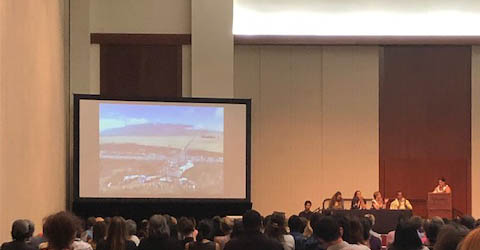
The Opening Plenary set the tone for the conference, which included decolonial and demilitarism tours led by local and Indigenous organizers; Artist-in-Residence adrienne maree brown of Detroit, who led workshops on “Emergent Strategy” and “Pleasure Activism”; and panels on a range of subjects featuring interdisciplinary scholars committed to building new frameworks as they fight corrupt systems.
As the Vice-Chair of the Digital Humanities Caucus of the American Studies Association, I spent a lot of time at Digital Humanities panels, workshops, and social events. Most of the panels and events I attended at the ASA this year coalesced around the central theme of increasing access to rare materials through building openly available digital collections.
I organized and chaired the DH Caucus-sponsored panel, “Building Digital Archives as We Fight,” which featured project teams working on the Colored Conventions Project; Landscapes of Injustice; the CAAAV (Committee Against Anti-Asian Violence) Organizing Asian Communities’ digital preservation work; the Indiana University East LGBTQ+ Archive; and an Omeka exhibit of the history of the Women’s, Gender, and Sexuality Studies program at Wooster College. Panelists addressed questions of how we should curate and archive sensitive material, how the immediacy of our fight informs our archiving practices, and how communities can benefit—and also be put at risk—through the publication and circulation of digital collections. The panel abstract is available on Humanities Commons, and you can also check out the panel’s slide deck.
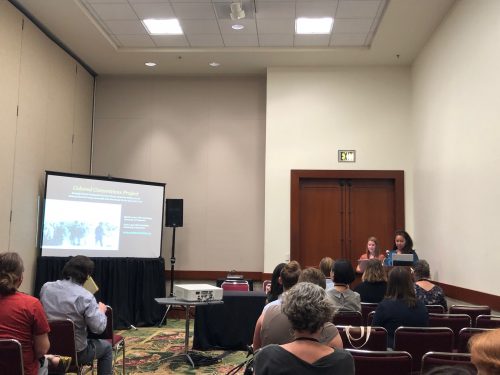
The DH Caucus also sponsored a panel on “Talk Story as Methodology” and organized our annual DH Shorts panel, in which the DH community at ASA gets together to present 5-minute flashtalks on what we’re up to at our respective institutions. It is a great tradition that sparks a lot of conversations about the ways we can collaborate across disciplines and universities.
I chaired the committee that awarded this year’s Garfinkel Prize in Digital Humanities, so a lot of my work was done in advance of the conference this year. This is the fourth year the DH Caucus has awarded the Garfinkel Prize and we had an impressive 30 submissions of very strong work to choose from. The winner of this year’s prize was Black Quotidian: Everyday History in African-American Newspapers by Matthew Delmont (Dartmouth College) and published by the Digital Projects Division of Stanford UP. Honorable mention went to Mapping Inequality: Redlining in New Deal America by project teams at the University of Richmond and Virginia Tech, and La Gazette Royale d’Hayti: A Digital Journal through Haiti’s Early Print Culture by Marlene L. Daut (University of Virginia).
And, to conclude, I’m pretty sure that the architects who designed the Hawaii Convention Center anticipated the (very real) internal conflict of attending a conference in Hawaii and choosing between the beach and a conference room. This convention center was definitely the most beautiful I’ve ever seen, featuring an open-air design and mountain views. The landscape of Hawaii was all around us, even while conferencing. The best of both worlds, for sure.
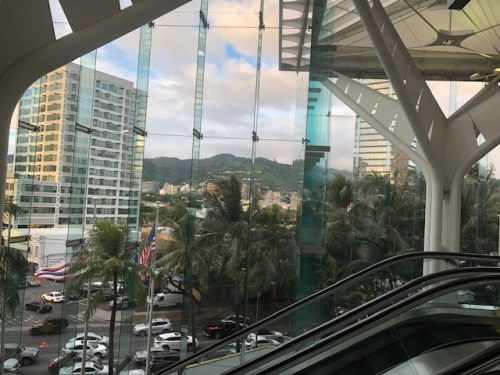
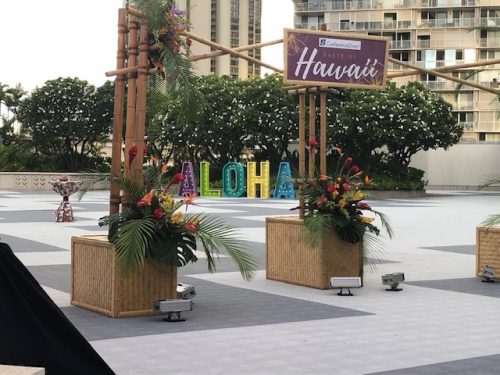
Overall it was an excellent conference and I’m already looking forward to the Annual Meeting in Baltimore next year!
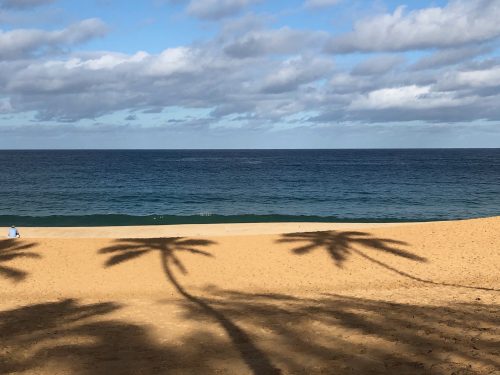

2 Comments on ‘Build as We Fight: The 2019 American Studies Association Annual Meeting’
Carrie, it once again sounds like you had a productive ASA experience, specially through your DH Caucus work. While there is much work to be done, I am encouraged by how many societies and disciplines across academe are starting to direct address the crises of colonialism, capitalism, and Western dominance in their fields. Kudos to ASA for giving the TMT activists a prominent voice at the conference!
Wow, sounds like a very timely (always timely?) topic that session panelists and participants really ran with. Congratulations on a successful conference and panel!